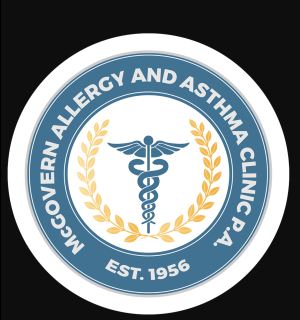
Dr. Serge De Golovine, MD
Pediatric Allergy
Medical Expertise of Dr. Serge De Golovine, MD
Dr. Serge De Golovine is a board-certified Houston allergist, internist and rheumatologist providing care to patients of all ages for a variety of allergic and immunologic conditions
After years of suffering from allergies, Dr. De Golovine has learned to understand his patients on a personal level allowing him to build a close relationship with them. He enjoys treating both children and adults with any allergies while focusing on asthma, sinusitis, food allergies, and skin rashes using a personalized, holistic approach.
About Dr. Serge De Golovine, MD
Dr. Serge De Golovine is currently an Assistant Professor of Medicine at Baylor College of Medicine where he is active in giving lectures to students and residents at Texas Children’s Hospital, as well as training Allergy Immunology fellows at the Ben Taub Hospital to become future allergists. In addition, he is in charge of the training and exposure to Allergy and Immunology of Internal Medicine residents from the UT-McGovern Medical School at the Texas Medical Center.
Patient Education Resources
There is some evidence to suggest that gluten, a protein found in wheat, barley, and rye, may be a trigger for asthma symptoms in some individuals. However, the relationship between gluten and asthma ...
EpiPens do have an expiration date, and it is important to replace them before they expire. The expiration date can be found on the packaging and the device itself.An expired EpiPen® may not work ...
Biologics are a class of medications that can be used to treat eczema, a chronic skin condition characterized by inflammation and itching. Biologics work by targeting specific parts of the immune syst...
Treatment for COPD can help improve breathing and slow the progression of the disease. Some treatments include:bronchodilators, which are medications that relax the muscles around the airways to help ...
The treatment for food allergies is to strictly avoid the allergenic food, and in case of accidental exposure, the use of rescue medications such as antihistamines and epinephrine (injectable) in the ...
Education & Training
Dr. De Golovine received his Doctor of Medicine (MD) from the University of Buenos Aires, Argentina, and completed his residency training in Internal Medicine and fellowship training in Allergy, Immunology, and Rheumatology at Baylor College of Medicine in Houston, Texas. While working as Chief Fellow, Dr. De Golovine received multiple awards for his basic science research in asthma treatments.
Professional Affiliations
McGovern Allergy and Asthma Clinic

“Founded in 1956, Houston’s McGovern Allergy and Asthma Clinic, P.A. has developed a worldwide reputation for excellence in patient care, research, and physician education.” -MD News Magazine
McGovern Allergy and Asthma Clinic providers specialize in the diagnosis and treatment of allergic diseases in adults and children caused by a broad spectrum of allergens. Allergens are substances in the environment that may cause allergic reactions. Such substances may include inhalants, such as house dust mites, mold spores, animal dander or various pollen; ingestants such as food or drugs; injectants such as insect stings; or contactants such as poison ivy, or metal alloys found in some jewelry, or even chemicals in the workplace. Reactions to these allergens may include hay fever, sinus conditions, asthma; skin rashes such as hives or eczema; gastrointestinal problems, or, in extreme cases, anaphylactic shock.
Preventive Care
A main focal point of McGovern Allergy and Asthma Clinic’s health care approach is preventive care. Once a diagnosis has been made, we can teach our patients strategies for avoiding known allergens.
Self Care
We also emphasize self-care. If allergens cannot be avoided, we teach our patients how to treat allergy flare-ups with safe symptomatic medications, such as inhalers for asthma patients. We also teach our patients what to do in the event of emergencies such as insect stings.
